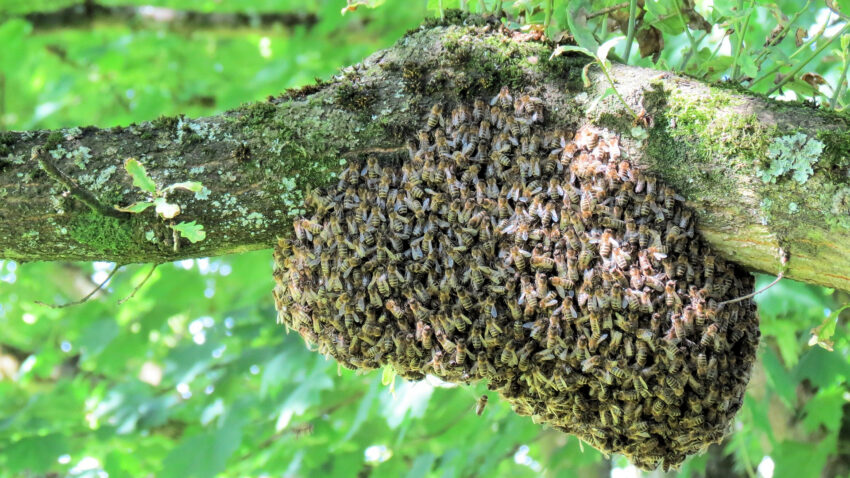Purbeck beekeepers are urging people not to panic if they encounter a swarm this spring – as the endangered insects need all the help they can to find new homes.
After a colder than average April and May in 2023, a sudden rise in temperature has encouraged bees to leave their hives and they could cluster almost anywhere as they search for somewhere else to base their new colony.
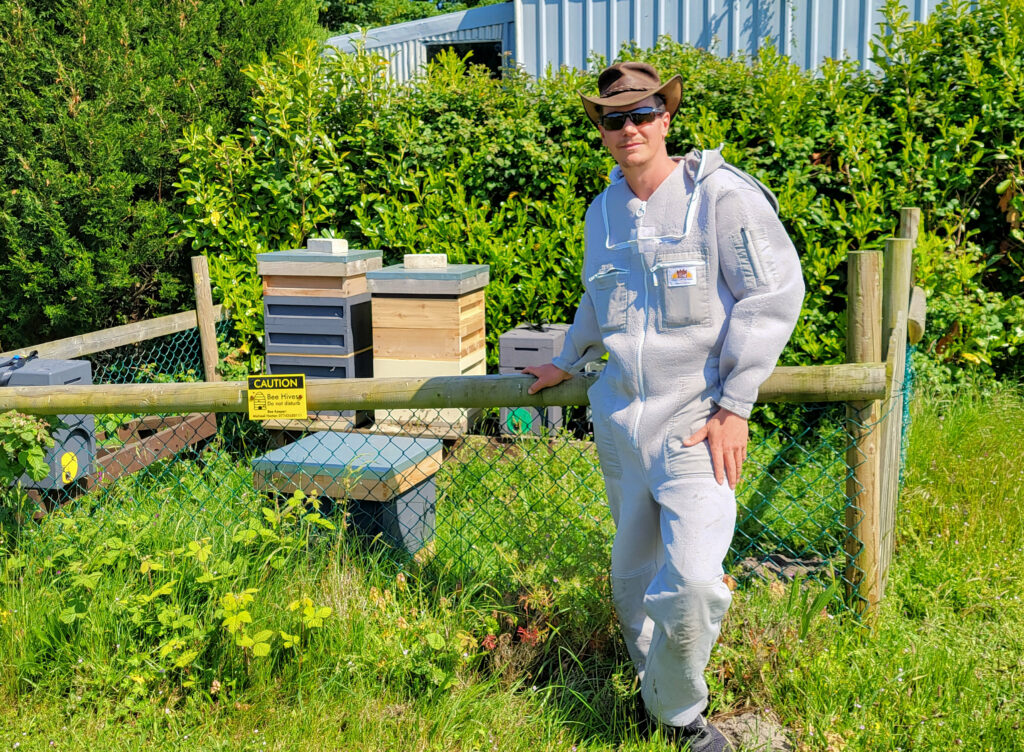
Gardener and beekeeper Mike Horton with some of his hives near Norden
Free swarm collection and rehoming service
But with honey bees still facing a huge threat to their numbers, East Dorset Beekeepers Association says that every bee counts, and is offering a free collection service to anyone who reports a swarm in Purbeck. They’ll then rehome the insects with trained apiarists.
Mike Horton, one of half a dozen trained swarm collectors in Purbeck, is also keen to better inform others about bees and how important they are as pollinators for the area.
He is leading a bee keeping workshop at Carey’s Secret Garden in Wareham on Saturday 27th May 2023 and says that it is more important than ever to recognise the vital role that bees play in the rural landscape.
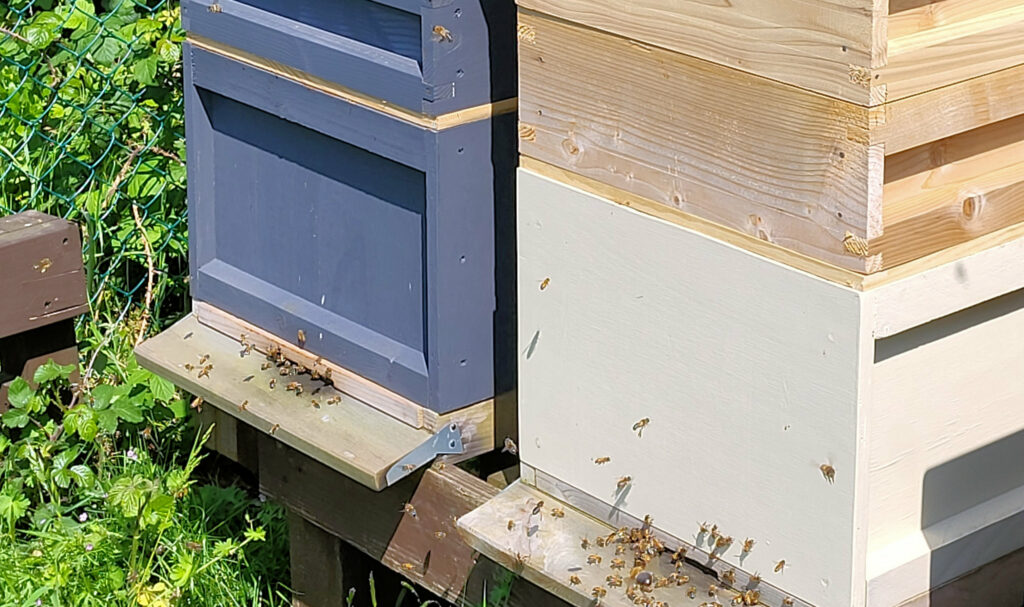
Busy bees will travel thousands of miles to produce their honey
“It takes 30,000 bees to make 1 pound of honey”
Mike said:
“It’s getting people to learn a little about the life cycle of bees and why they are so important, and also to let them see at first hand a working hive, to understand how much effort and work the bees put into making honey.
“It will take about 30,000 bees travelling over 30,000 miles to produce just one pound of honey, while visiting a couple of million flowers, it’s amazing.
“My focus isn’t about harvesting lots of honey, but seeing how the bees live and learning more about them. In the UK, we have about 270 species, including honey bees, and they’re responsible for pollinating 80 per cent of our crops.
“If bees disappear, we’d have big problems producing enough food, so it is worrying that, like many other insects, bee numbers are plummeting.”
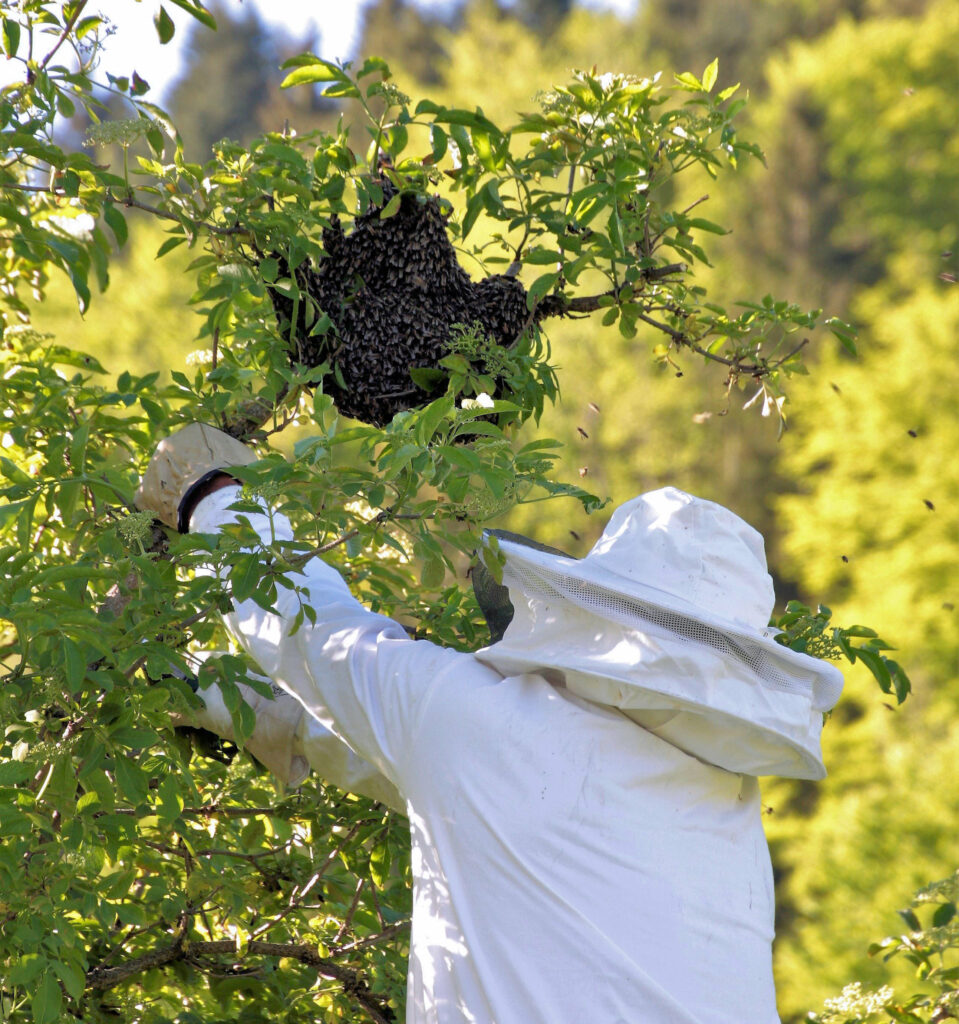
Professionals can remove swarms of bees safely – and find a new home for them
Bees in a swarm are at their most docile
Warm sunny days in May, June and July are the most likely time for bees to swarm and the process can look dramatic, with thousands of the insects in a large noisy cloud looking for a new home.
But bees in a swarm are at their most docile and are highly unlikely to sting anyone. They can be collected easily by a professional and have an important role to play in pollinating summer crops across Purbeck.
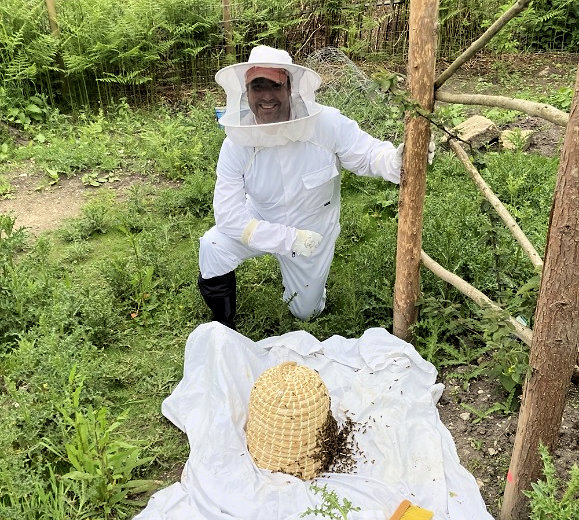
Mike always carries protective gear and a spare hive around with him
Scout bees sent out to find new home
Mike, who keeps hives in Norden and Wareham in Dorset, added:
“A swarm is a natural process for bees to expand their numbers. They have laid a new queen in their previous colony and the old queen is now accompanying her old bees to a new home.
“The honey bees will have filled up on honey from their stores and are totally content, relatively passive and less likely to sting. They will hang in a cluster, usually on a tree branch, whilst they send out scout bees to look for a new home.
“Because these days there are not so many of the old gnarly trees they used to nest in, when a swarm is around it is most likely to end up in people’s chimneypots, a cavity wall or in the eaves of a house, at which point it gets quite expensive to have them removed.
“But if I am alerted when they are in a swarm before they get to nest I can put them in a hive and they can be usefully rehomed with newly trained beekeepers.”
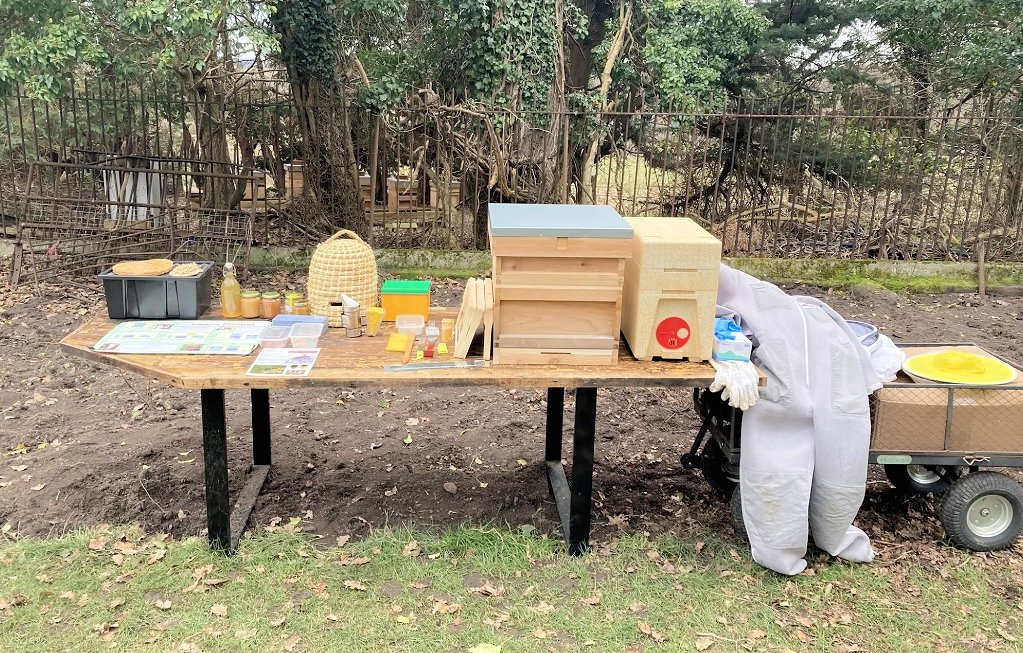
Bee keeping workshops are held at Carey’s Secret Garden, Wareham
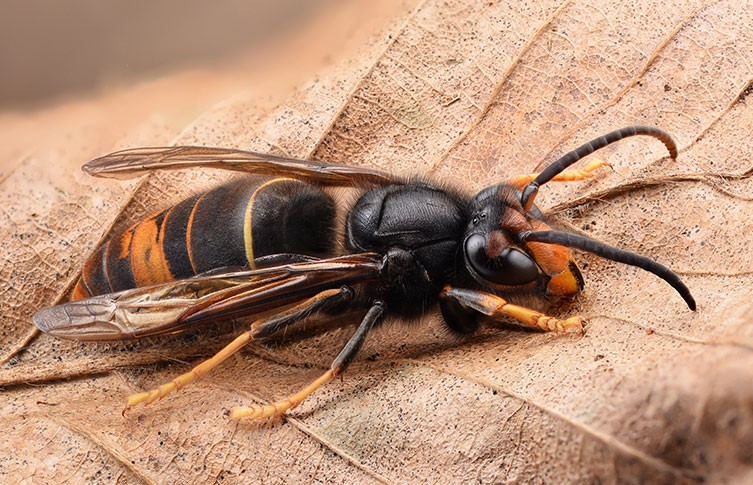
Any sightings of an Asian hornet like this one should be reported immediately
Asian hornets can destroy colonies in hours
A third of UK bees have disappeared in the last 10 years and 35 species are currently at risk of extinction as the loss of their natural habitat continues to be decimated.
Bees and other pollinators rely on wildflower meadows for food and shelter, but since 1945 the UK has lost 97 per cent of these areas and farming changes have also seen hedgerows removed, while introducing herbicides and pesticides.
Climate change is also having an impact, as a shift in temperatures and seasons affects when food is available, and has also encouraged new pests and diseases.
Since the varroa mite arrived in the UK and wiped out huge numbers of bee colonies, there have also been threats posed by foulbrood and most recently, sightings of the Asian hornet in the south of England, predators which can destroy entire hives in a matter of hours.
One was recently spotted on a ferry out of Poole, and the threat from them is so acute that an Asian hornet network has been set up that will respond to sightings of them immediately.
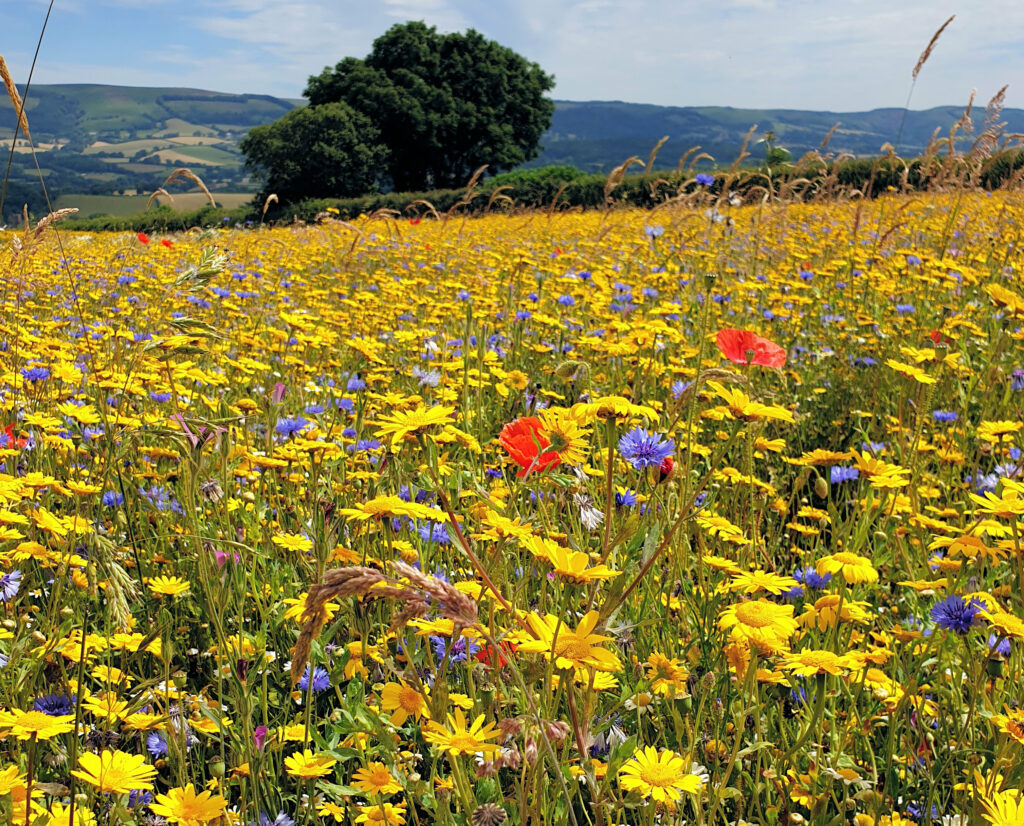
Wild flower meadows are becoming increasingly common
Leave wild flowers to grow naturally
With all the threats to bees, Mike said that the best way to help protect them was to join movements like No Mow May, adding:
“Leaving wild flowers to grow naturally and allowing nectar sources for all the different types of bee is very important, it’s a great idea, and not using pesticides in your garden is also very helpful.
“People are starting to get a better understanding of why the bees are so important and the next generation now have a better mindset about what is happening in our whole ecosystem.”
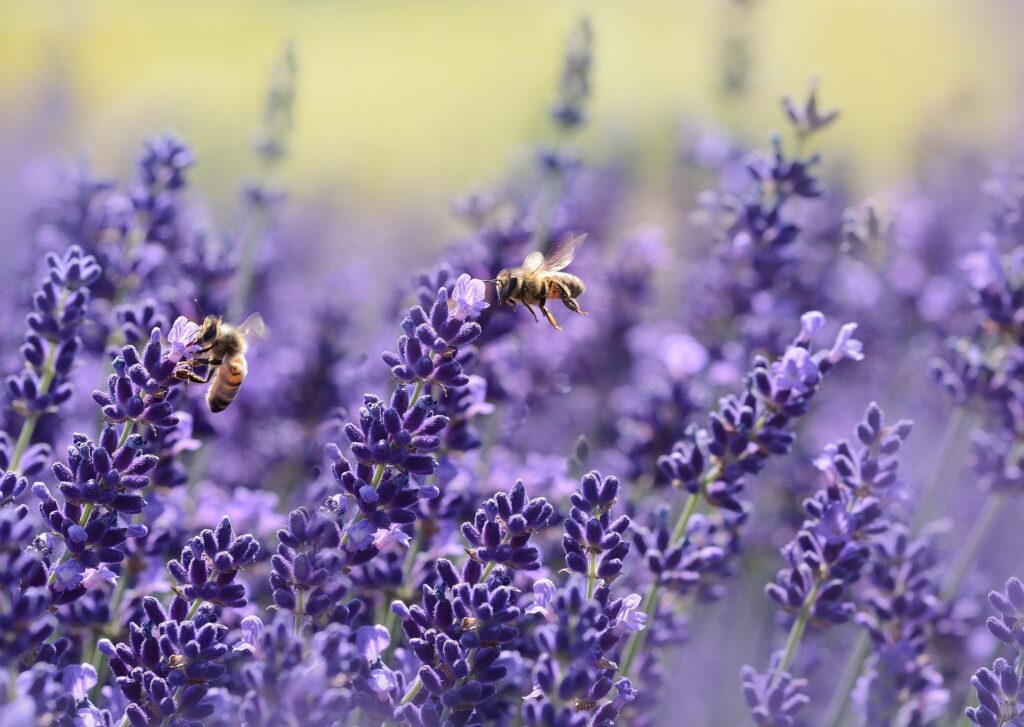
Lavender is a favourite plant for bees and gardeners alike
Further information
- Purbeck swarm collectors are listed on the East Dorset Beekeepers website
- Details of the beekeeping workshop at Carey’s Secret Garden are on its website
- The Natural History Museum has a guide to spotting and reporting Asian hornets
